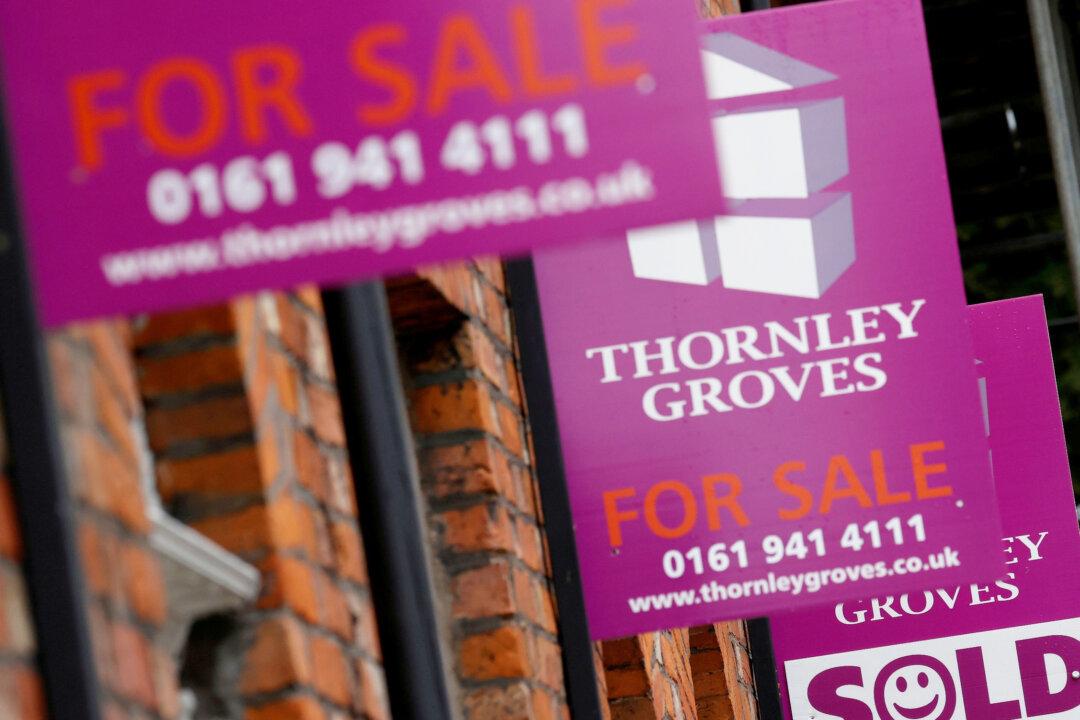UK house prices that dipped in May and June have risen to an “all-time high” following the country’s easing out of lockdown, according to Nationwide, the world’s largest building society.
After a seasonal adjustment, house prices rose by 2 percent in August, after a 1.8 percent rise in July, Nationwide’s Chief Economist Robert Gardner said in a statement (pdf) on Wednesday.





